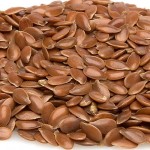Vitamins and supplements found at health stores and pharmacies are all the rage these days — from multivitamins to specialty supplements that are designed to support specific bodily functions. So does that mean you should also add a supplement to your pet’s daily ration of food to keep him or her healthy? Not only is this not necessarily true for most dogs, in some cases it can be harmful.
Commercial pet foods are formulated to meet all the nutrient requirements a dog needs to thrive. Unlike our diets, which vary day-to-day, most dogs eat the same food day in and day out. Pet food manufacturers create their diets with this assumption, making any sort of daily multi-vitamin unnecessary. That is not to say that all pet foods are created equal, because there is great variety among each brand of food, which is extremely important to know when choosing a diet for your dog.
The best pet food companies will formulate their diets using feeding trials. This means that they create a food based on a formulation, then actually feed it to dogs and monitor their response to the diet via a variety of diagnostic testing. This gives a complete picture as to how each ingredient in the diet comes together in the final product. There are very few companies that actually do this and it is a critical process in developing a complete and balanced diet. The pet food companies that do not perform feeding trials simply develop their diet based on a formula, and package it and sell it without ever feeding it to an actual dog.
Additionally, the better pet food manufacturers will create a diet based on the life stage and lifestyle of the dogs they are marketing to. One can imagine that a growing puppy has very different nutritional needs than an adult dog. Many pet food companies only produce foods designed to meet the nutritional requirements for “all life stages,” which means that food is formulated to meet the dietary needs of a puppy and is therefore inappropriate for adult and senior dogs.
Once you have chosen a diet that was developed using feeding trials and that is ideal for your dog’s life stage and lifestyle, there are some supplements that you can consider adding based on the particular health needs of your dog. You should always first discuss with your veterinarian any supplements that you are considering giving to your dog. This will ensure there are no complications or health concerns with other medications you are giving or medical conditions your dog has. If you choose a multi-vitamin or specific single nutrient, please be aware that adding these to a complete and balanced dog food could combine with the nutrients already in the food and create toxicity.
Glucosamine and chondroitin are commonly given together to help protect the joints to prevent or slow progression of arthritis. These work to increase lubrication within the joint as well as repair cartilage. They will not eliminate arthritis or correct any structural abnormalities but they can help support the joint function. There are countless joint supplements out there to choose from so be sure to discuss with your veterinarian which one is best for your dog.











